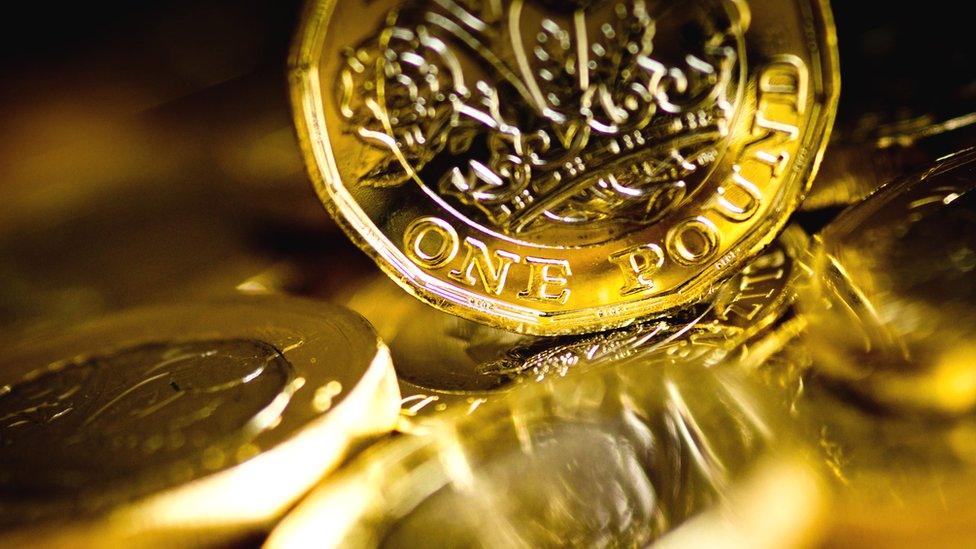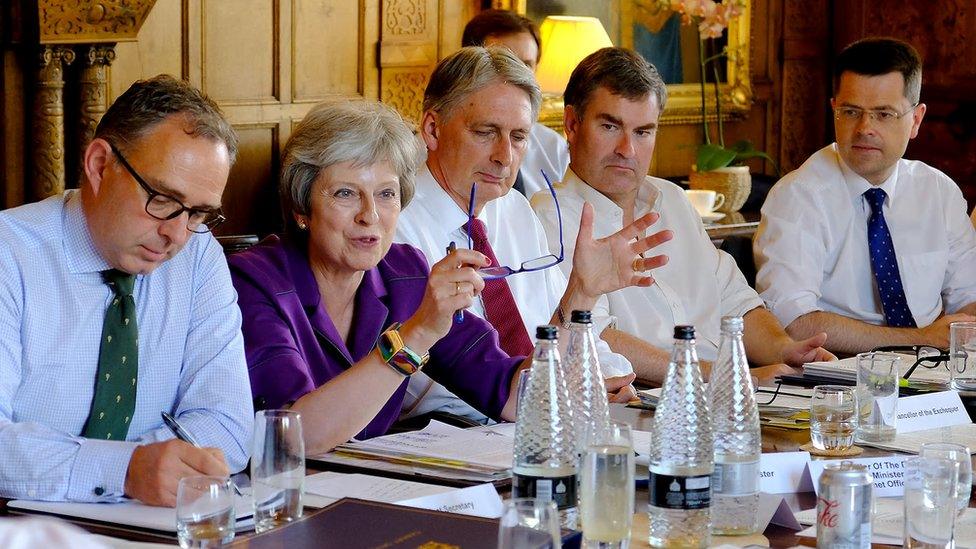Pound's rollercoaster ride continues
- Published

The pound has sunk in volatile trading after reports that a Brexit deal was near were downplayed by UK officials.
Downing Street said "substantial issues" still need to be resolved as negotiators try to secure an agreement over the UK's exit from the EU.
The pound fell almost 1% against the dollar to $1.286, whilst against the euro it was 0.2% lower at €1.142.
Analysts said the pound's movements over the next week would depend on how the Brexit talks developed.
The pound initially sagged in morning trading amid increasing disarray in the cabinet over the UK's exit from the EU, before briefly recovering on hopes of a deal and then later sinking again as those hopes were downplayed.
"While some European officials are still sounding optimistic that an EC-UK deal can be struck in the coming weeks, the market has grown more sceptical," said Marc Chandler, chief market strategist at Bannockburn Global Forex.
Mrs May is trying to rally support among cabinet ministers for her Brexit proposal in time for a hoped-for summit in Brussels later this month.
British Pound against US Dollar
On Friday, Transport Minister Jo Johnson became the latest government figure to quit his post over Brexit, arguing that UK was "on the brink of the greatest crisis" since World War Two.
Simon Derrick, head of currency research at Bank of New York Mellon, told the BBC that the pound's weakness against the dollar was "obviously related to the uncertainty over the weekend", but added: "At least half of it is actually about dollar strength and the expectation that the Federal Reserve will hike interest rates in December."
The resurgent dollar also hit the euro, down 0.7% against the greenback on Monday to $1.1251, having earlier touched a 17-month low.
Monex Europe analyst Bart Hordijk blamed the euro's weakness on "the four apocalyptic horsemen" of "Brexit, Italy, slower growth and a cautious European Central Bank".
He forecast that the euro could fall further against the dollar.
"Signs are certainly dire for the euro and a drastic change of monetary policy signalling, the Italian budget stance, macroeconomic prospects, or Brexit is what the currency needs now to turn this momentum around," he said.
- Published12 November 2018

- Published12 November 2018